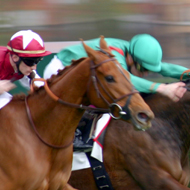Sport horse health benefits from surfaces study

Experts describe the optimum conditions to maintain performance and minimise injury risk.
Experts have carried out the most extensive study so far into the effect of arena surfaces on sport horse health.
Published by FEI, the four-year study brought together eight equine scientists from six universities in the UK, US and Sweden. They collaborated with three equine and racing research centres and two horse charities.
The Equine Surfaces White Paper gathered the latest data and published scientific papers to explore the effects of arena and turf surfaces on training and competition horses.
Authors describe the optimal composition, construction and maintenance of arenas to maximise equine performance, while minimising the risk of injury.
In order to guide and improve future competition and training surfaces for sport horses, the paper explains current methods of surface preparation and maintenance techniques, in a way that can be easily understood by riders, trainers, course designers and arena builders.
Key findings will be presented by Professor Lars Roepstorff from the Swedish University of Agricultural Sciences, at the FEI Sports Forum this month.
"We now have the latest scientific knowledge on equine surfaces contained in one place, thanks to an intensive global effort over several years," he said.
The white paper will be constantly updated with further knowledge and new scientific studies. Prof Roepstorff says this is "absolutely key as horse sport continues to grow around the world."



 Zoetis has launched a new survey to identify management techniques for Equine Herpes Virus (EHV).
Zoetis has launched a new survey to identify management techniques for Equine Herpes Virus (EHV).